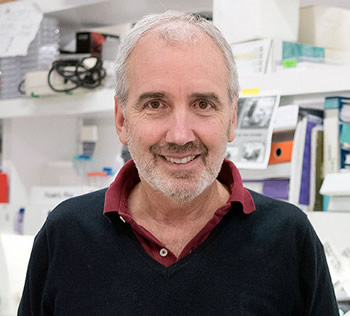Professor Alberto R. KornblihttWritten by Dr. Sneha Lal  Molecular Biologist, Prof. Alberto R. Kornblihtt is an international member of the National Academy of Sciences, USA (2011) and an associate member of the Académie des Sciences, France (2021). He holds the position of Emeritus Professor at the University of Buenos Aires as well as Investigador Superior at National Research Council (CONICET), Argentina and serves as a member of the executive council of CONICET in Biological and Health Sciences. During his illustrious career spanning about four decades, he has received many awards for his research and contributions to science. These include the Investigator of the Nation 2010 (Presidency of Argentina), The World Academy of Sciences (TWAS) Prize in Medical Sciences, Academy of Sciences for the developing world (2012), the Konex Diamond award as the best scientist of the decade of Argentina (shared with Juan Martín Maldacena) (2013) to name a few. Since his post-doctoral years, Prof. Kornblihtt has been studying the coupling between transcription elongation and alternative splicing from a basic science perspective. However, only recently could he exploit this knowledge towards applied research. Prof. Kornblihtt and his team have now set the bases for a combined therapy for spinal muscular atrophy based on increasing elongation though chromatin opening with histone deacetylase inhibitors and the splicing correcting antisense oligonucleotide nusinersen (marketed as Spinraza), developed by Adrian Krainer. This study has been recently published in Cell . Kornblihtt lab also seeks to understand how the chromatin state affects the elongation rate of RNA polymerase II, which in turn affects alternative splicing decisions. The lab also studies the mechanisms by which light/dark affect alternative splicing of a subset of genes in the model plant Arabidopsis thaliana. A native of Argentina, Prof. Kornblihtt’s interest in biology was piqued in high school. He said, “My botany and biology teacher at high school, Rosa Guaglianone, was fundamental to seed my love for biology and for knowledge based on evidence.” Prof. Kornblihtt received his Master’s in Biology from University of Buenos Aires in 1977. A chance application for an internship enabled him to pursue his PhD with Prof. Héctor Torres of the Campomar Foundation, University of Buenos Aires, the most prestigious institute in Argentina, which was directed by Luis Leloir a Nobel laureate for his discovery of sugar nucleotides. Reminiscing about his PhD days, he said, “The environment at Campomar was paradise. It was late 70's - early 80's, the boom years of eukaryotic molecular biology. We read and discussed papers on introns, exons, splicing, cloning, etc.” He further added, “From Torres, I learned of the importance to produce solid science from a peripheric country.”
From 1981 to 1984, he moved to Sir William Dunn School of Pathology, University of Oxford, England for post-doctoral training under Prof. Francisco E. “Tito” Baralle, where he “learned to enjoy the rigorous pathway of science.” When asked about what drew him to Prof. Baralle’s lab, he explained, “my fascination with molecular cloning started after attending a practical course led by Tito who at the time was a junior scientist at the LMB, MRC in Cambridge, UK”. He further added, “These were the days, 1980, on gene cloning using lambda phage libraries developed by Tom Maniatis and I vividly remember Tito telling us that "now" people were starting to clone cDNA. We arranged almost immediately to do my postdoc in his lab that had moved from Cambridge to Oxford, something that I enjoyed enormously .” At age 30, Prof. Kornblihtt started his independent career in his home country of Argentina. This decision to do research far from the top scientific centers in the Northern hemisphere was a key shaping feature of his career. “The journey required hard work, patience, commitment, undergrad teaching, vibrating with each successful or failing graduate student experiment, and resilience. Although most scientists have an enormous ego, a good dose of humility is also necessary”. When asked about what keeps him going, he says, “my excitement about the results of the current experiments”. Talking about the greatest challenge he overcame, he says “It was at the beginning of my career, overcoming the depression I experienced after the rejection of a paper. At the time, it seemed that the world was crumbling. With time I learned that this happens to everybody and that sometimes (not always) one learns from rejections and the reviewers' comments.” Describing his achievements and journey so far, he says, “I never imagined that one day I would be elected to the US NAS or to the French Academy”. Apart from administrative and academic duties at the University and CONICET, Prof. Kornblihtt has been teaching the introductory course to Molecular and Cell Biology to about 400 undergraduate students each year, for more than 30 years. All this helped him feel that he was passing on the excellent public education he received to his country. For graduate students, Prof. Kornblihtt advises to not focus too much on the subject but to find the best possible lab and advisor where the lab members are happy with the guidance and support they are receiving. Prof. Kornblihtt’s favorite RNA is ‘undoubtedly, eukaryotic mRNA’, and he loved RNA’s special issue marking the 20th anniversary of RNA Society’s journal. You can reach him through e-mail and his webpage . |
